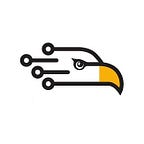Switching from a non-IT Background to Software Testing | Agilitest blog
An exciting yet demanding career in software testing may be yours if you enjoy problem-solving, risk management, and enhancing product quality.
Before the COVID-19 epidemic, I was working as a freelance journalist with one of the national dailies in Nigeria. Graduating from a Mass Communication degree, I was dreaming of having a column in a daily newspaper.
After years of practice and pursuing journalism as a career, the organisation I was working for was not ready to offer reporter positions. And then the COVID-19 epidemic appeared. It sparked new technological advances that aroused my curiosity. After researching and questioning alternative job paths, I noticed a greater need for testing solutions, particularly in the retail and IT sectors. It made sense for me to think about a career as a software tester given the field’s vast scope and its use across many industries and sectors.
This is how I transitioned my career from being a journalist (a non-IT background career) to finding a software testing position. Although coming from a non-IT background, I didn’t know anything about testing outside of what I researched and learned on my own. So naturally, I had to start from scratch.
A job in software testing may be ideal for you if you appreciate challenges and finding solutions to complex issues. Before transitioning to software testing, examine your abilities to check if a career in software testing is a good fit for you before making a decision.
Consider your motivations for making the change. And make a note of any abilities that would help you succeed in the new position if you do decide to make that change. Additionally, note any abilities you believe you may be lacking. If software testing is something you are truly interested in, you can always work to improve these.
Let’s see a bit of what software testing is all about.
What does a software tester do?
The quality assurance phase of the software development life cycle is handled by a software tester.
Your job as a tester is to run various manual and automated tests to guarantee that any new software created by developers is error-free.
Your efforts will stop live incidents, which, depending on the software, can cause serious reputational harm, monetary loss, or even, in severe circumstances, the loss of life.
You may need a thorough understanding of programming and coding languages as you progress in your chosen career. In fact, your job is to identify any discrepancies in new advancements and focus on technical solutions.
To fully understand the scope of a project, the software tester needs to collaborate with a variety of stakeholders, including developers, project support teams, and system users.
A software tester handles troubleshooting, documents bugs, gives developers comments, and shares test results with both technical and non-technical stakeholders.
Who may work as a software tester?
You can enter the field of software testing engineering at any time. Whether you’re a complete novice or whether you have transferable abilities from a previous IT job or another industry, just like I did.
Taking a suitable software tester certification, such as an International Software Testing Qualifications Board (ISTQB) or Certified Software Tester Exam (CSTE certification) that focuses on software testing life cycle, software development, and a variety of testing methodologies is a good idea.
The American Software Testing Qualifications Board also offers some other certificates like Advanced Test Analyst and Advanced Security Tester.
Software testing Job
Read full article here. An article by Adeniyi Adunola on our blog.
